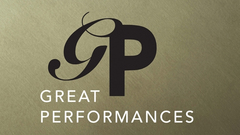Graham Nash

Musician • Singer • Songwriter • Photographer
Birth Date: February 2, 1942
Age: 83 years old
Birth Place: Blackpool, England, UK
Partners: Rita Coolidge, Joni Mitchell
Bands: Crosby Stills Nash & Young
One of the most enduring figures of the 1960s counterculture movement, Graham Nash, OBE, was a key member of two major musical acts of the decade, and as such, contributed greatly to the culture of the period through songs and statements. He launched his career with the Hollies, who rose from the British beat scene with his crystalline vocals and songwriting on memorable pop hits like "Bus Stop" and "Carrie Ann."
Disappointed by lack of interest in his progressive work, he relocated to the States, where he teamed with Stephen Stills and David Crosby to form Crosby, Stills & Nash. Their blend of gorgeous harmony and pointed political statements on songs like "Ohio," and "Teach Your Children" made them the standard bearers of the Woodstock Nation, which was further enhanced by the addition of Neil Young.
But ego clashes and substance issues tore the supergroup apart in the early 1970s, leaving Nash to join with Crosby as a duo until his storied drug problems sidelined him for years. Over the decades, Nash would reunite with Stills and Crosby for new albums, which saw diminishing returns with each release. For his contributions to the music industry, Nash was twice elected into the Rock and Roll Hall of Fame, and remained one of the scene's most prolific and dedicated members.
Born Graham William Nash on Feb. 2, 1942 in Blackpool, a seaside borough in Lancashire, England. His family had been sent there during World War II from their hometown of Salford, where Nash spent most of his early years after their return. In 1947, he met Allan Clarke, with whom he forged a fast friendship based on their mutual love of music. They performed together under a variety of names, including a brief stint as a brother act called Ricky and Dane Young.
In the early '60s, they merged with members from another group, the Deltas, to form the Hollies, which took their name from both Buddy Holly and the Christmas garland. The Hollies signed with EMI in 1963, and began recording a series of covers of American pop and R&B songs that were largely distinguished by Nash's high, burnished vocals. In 1965, Nash began writing original material with Clarke and guitarist Tony Hicks, and generated a Top Ten hit in the U.K. with the single "We're Through."
They broke the American Top 40 with the single "Look Through Any Window," and soon established themselves as full-fledged members of the British Invasion, complete with hysterical fans.
From 1966 to 1968, the Hollies produced some of the loveliest pop songs of the decade, built around Nash, Clarke and Hicks' gorgeous harmonies: the wistful "Bus Stop" (1966) was their first song to enter the American Top 10 singles chart, and was soon followed by "On a Carousel" (1967) and "Carrie Ann" (1967).
Their successes on both sides of the Atlantic granted them the freedom to experiment in the studio, resulting in such adventurous sides as "Stop Stop Stop" (1967) and "King Midas in Reverse" (1967), which evoked the growing psychedelic movement through the use of Eastern instruments and studio effects. The latter signaled that the Hollies were capable of producing material that could stand comfortably next to the groundbreaking work of the period done by the Beatles and the Rolling Stones.
The problem was that their fans, especially in America, were not interested. To most listeners, the Hollies were a pop act, a notion that ran contrary to Nash's vision for the group. He had partaken heavily in the sights, sounds and experiences of the Summer of Love, and forged relationships with American musicians during a tour of the States. Nash had become particularly close with David Crosby of the Byrds and Stephen Stills of Buffalo Springfield, finding that their voices and musical directions meshed beautifully with his.
In 1968, Nash left the Hollies, and after some contract intricacies, became a member of Crosby, Stills & Nash. As a member of the new supergroup, he found some of the creative freedom he had been denied him while in the Hollies. The music of Crosby, Stills & Nash, as heard on their self-titled 1969 debut, hewed closer to folk rock with some gentle psychedelic influence than the pop-driven material of each member's previous bands.
Nash was also able to finally release "Marrakesh Express," an ebullient tribute to global travel he had initially recorded but never completed with the Hollies. The song reached No. 28 in America, and became a staple of their live set, including their second live performance ever at the Woodstock Festival in 1969. That appearance helped to push sales of Crosby, Stills & Nash past the two million mark, and facilitated a second album, Déjà Vu, which brought Stills' former bandmate, Neil Young, into the fold.
For that album, Nash contributed two of the group's most enduring songs, the sweetly earnest "Teach Your Children" and "Our House," a tribute to the domestic bliss he experienced while living with Joni Mitchell in Los Angeles' famed Laurel Canyon neighborhood.
However, with the success of Crosby, Stills, Nash & Young also came the personal problems that often arose in groups with one or more dominant personalities. Excessive drug use exacerbated growing tensions between the members, who clashed over the group's direction and song choices. A 1970 tour, documented on the 1971 live album 4 Way Street, caused the quartet to implode, sending each member to lick their wounds with a solo album.
Nash's LP, Songs for Beginners (1971), highlighted his growing interest in political concerns with "Chicago," a song about the turbulence of the 1968 Democratic Convention he had initially recorded on 4 Way Street. It broke the Top 20 in America, and preceded a wildly successful acoustic tour of the States with Crosby as Crosby & Nash.
The following year, they released Graham Nash David Crosby, which shot to the Top 5 and generated Nash's bitterly humorous song "Immigration Man," which was spawned by an unpleasant run-in with a U.S. Customs agent while trying to enter the country. Crosby & Nash's burgeoning joint career was briefly halted by the 1974 Crosby, Stills, Nash & Young tour, which precipitated a recording session for a new album.
The project soon collapsed under the usual tensions, and Crosby & Nash returned to their own solo and duo work after departing Atlantic Records for ABC. Nash's second solo album, Wild Tales (1974), failed to match the reception of its predecessor, so he dove headlong into a pair of studio records with Crosby.
Both Wind on the Water (1975) and Whistling Down the Wire (1976) were hits, and the pair soon became guest vocalists du jour on songs by Joni Mitchell, James Taylor, Elton John and Jackson Browne.
But again, the momentum was halted by a proposed Crosby, Stills, Nash & Young record. After beginning work on Long May You Run, Crosby & Nash were forced to abandon the sessions to complete their contract with ABC. Stills and Young angrily wiped their vocals from the session recordings, and released the album as The Stills-Young Band.
The move generated considerable bad blood between the two camps, which vowed to never work together again. Crosby & Nash closed out 1977 with a live album, Crosby-Nash Live, and a greatest hits compilation the following year.
But to most observers' surprise, Crosby & Nash reunited with Stills in 1977 for their second record, CSN. Its respectable chart performance generated new interest in the group, who dutifully toured in support. Nash, however, was eager to return to the relative freedom of his collaborations with Crosby.
But his compatriot was floundering in the grip of a devastating drug addiction, making recording sessions impossible. 1980's Earth and Sky, which began as a Crosby & Nash record, was ultimately released as a solo effort by Nash to negative reviews from the press and public alike. Finding that the country's climate was no longer as receptive to his Aquarian Age-inspired statements, Nash became a staple of political-minded music events like the 1979 No Nukes concert.
He also cultivated a second career as a serious collector of photographs, and exhibited his holdings of over a thousand images in museums around the world throughout the late 1970s and 1980s.
In 1982, Nash reunited with Stills and a still-dissolute Crosby for Daylight Again, which generated a minor hit with the wistful "Wasted on the Way." The following year, he surprised many by reuniting with his old bandmates the Hollies for an album, What Goes Around, and a well-received concert tour of the United States.
In 1986, his fourth solo album, Innocent Eyes, reflected his attempt to keep up with the times with predominant use of synthesizers and drum machines, which pleased neither his core audience nor new listeners. He would spend the remainder of the 1980s working on Crosby, Stills, Nash & Young projects like American Dream, which managed to break the Top 20 in the face of open dislike from critics and even the band members themselves, and experimenting with designing new ways to print digital imagery from computers.
In 1991, he launched a fine art digital printing company, Nash Editions Ltd., which printed large format fine art prints.
Though Crosby, Stills & Nash remained a lucrative act on tour circuits, their albums were barely breaking the Top 100. When 1994's After the Storm flopped upon release, the group was released from their contract with Atlantic. After Crosby, Stills & Nash was inducted into the Rock and Roll Hall of Fame in 1997, a newly sober David Crosby helped Nash release Another Stoney Evening (1998), a recording of the Los Angeles date of Crosby & Nash's 1971 acoustic tour.
Convinced that their act as a trio still bore some relevancy, Crosby, Stills & Nash financed a series of low-fi sessions that brought Neil Young back into the fold. Looking Forward (1999) received the best reviews of the band's career in decades, and generated two top-selling tours in 2000 and 2002.
In 2004, Crosby & Nash released their first new album in decades, Crosby and Nash, and collaborated with Pink Floyd's David Gilmour on his solo album, On an Island, which reached No. 1 on the U.K. charts. Meanwhile, Crosby, Stills & Nash continued to draw major crowds at festivals and concerts around the world.
In 2010, Nash was inducted into the Rock and Roll Hall of Fame for a second time to celebrate his work with the Hollies. That same year, he was made an Officer of the British Empire for his contributions to music and culture. In 2011, Nash's photographic endeavors helped to earn him the title of George Eastman Scholar at the Eastman House in New York.
By Paul Gaita
Credits
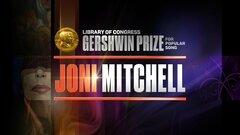
Joni Mitchell: The Library of Congress Gershwin Prize for Popular Song

Lost Angel: The Genius of Judee Sill

The 44th Annual Kennedy Center Honors

CBS Mornings

Paul Shaffer Plus One

The Music Center Presents Joni 75: A Birthday Celebration

Show Me the Picture: The Story of Jim Marshall

Laurel Canyon

Can't Steal Our Vibe

M.C. Escher - Het oneindige zoeken
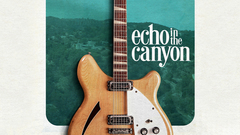
Echo in the CanyonStream

Graham Nash Live
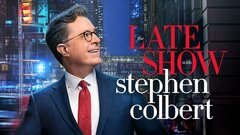
The Late Show With Stephen ColbertStream

Speakeasy
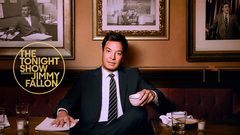
The Tonight Show Starring Jimmy FallonStream

Vans Get-N Classic

Vans Get-N Classic
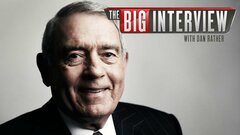
The Big Interview With Dan RatherStream

PBS NewsHour Weekend

The Hollies: Look Through Any Window 1963-1975

Home & Family

Crosby and Nash

Crosby, Stills & Nash: CSN 2012

Buddy Holly: Listen to Me

Crosby-Nash: In Concert

CSNY: Deja Vu

Remember That Night
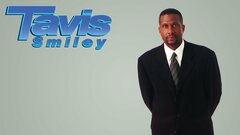
Tavis Smiley

Joni Mitchell: A Woman of Heart and Mind

Desert Island Discs

The Mancunian Way
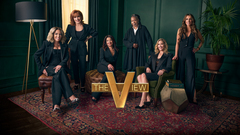
The View

Rock 'n' Roll Revolution: The British Invade America

Jackson Browne: Going Home
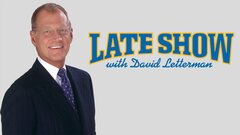
Late Show With David Letterman

CBS News Sunday MorningStream
